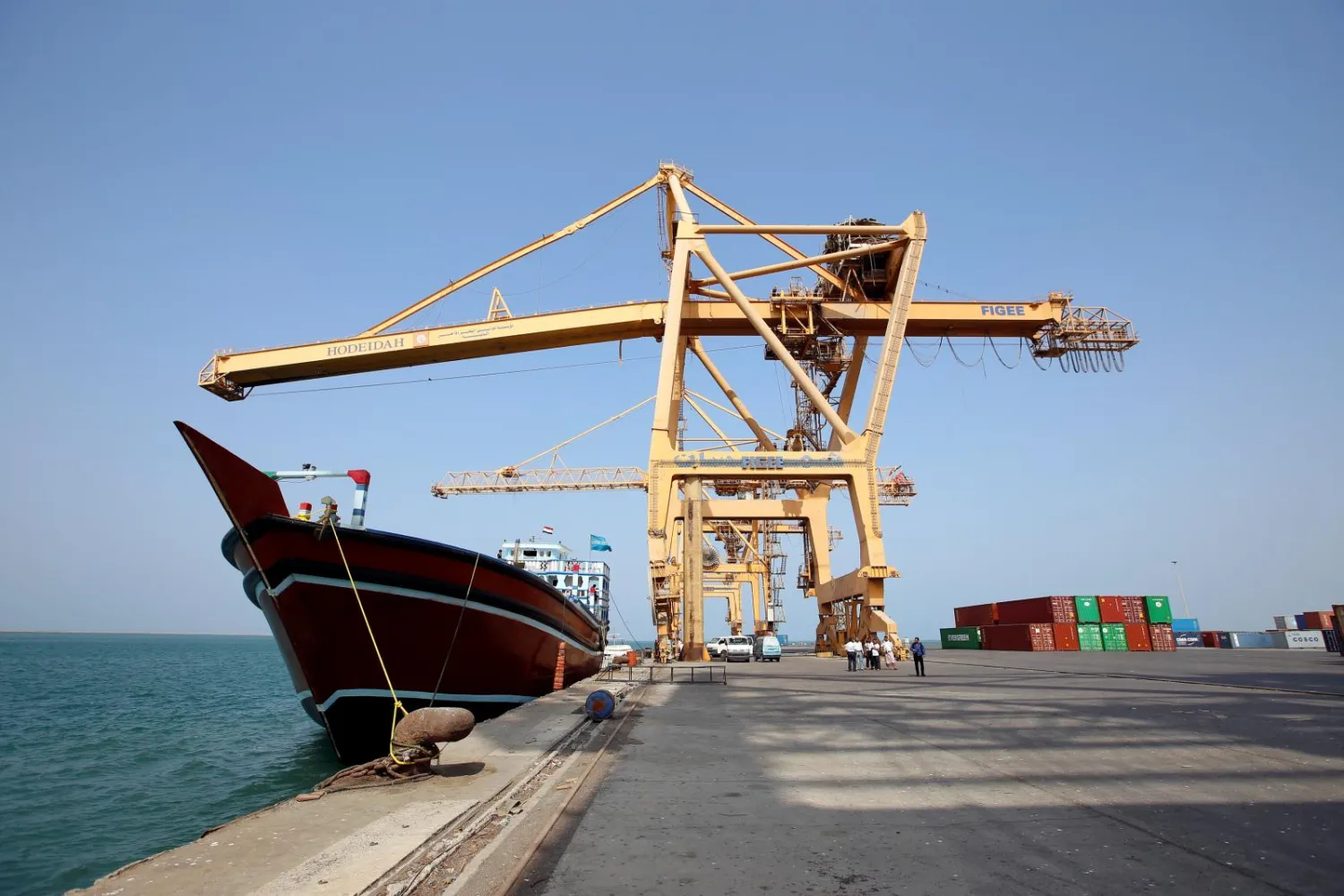Yemeni Joint Forces backed by the Arab Coalition launched Friday a battle to liberate Hodeida and regain control of its strategic port from the Houthis.
The operation was launched after Yemeni forces secured areas in the west and southwest of Taiz and cutting supply lines to Houthis that have suffered major blows in ever-shrinking pockets of land.
The battle coincided with the visit of Yemeni President Abdrabbuh Mansur Hadi and his deputy Ali Mohsen Al-Ahmar to the headquarters of the joint leadership of the Arab Coalition in Riyadh to receive a briefing on battlefield developments.
Hadi commended the role played by Saudi Arabia and UAE within the Coalition, official sources said. He also lauded their accuracy and speed, which are essential factors in the success of military operations.
The Yemeni president was briefed on the operations and met with Lieutenant General Fahd bin Turki bin Abdulaziz al-Saud, the commander of the Joint Forces, who stressed joint efforts to achieve the objectives of the Decisive Storm and Restoring Hope operations.
Field sources said a number of Houthi commanders have been killed in battlefronts on the west coast and Al-Bayda. They added that Yemeni forces regained control of Kahboub mountainous area.
The sources continued that the Yemeni Joint Forces launched a wide operation from two axes towards Hodeida in the north and towards Al Garrahi and At Tuhayta. In the first hours of the operation, the sources affirmed to Asharq Al-Awsat restoring Haymah port and regaining control of a number of neighboring towns in At Tuhayta amid ongoing battles in Hays District.
While observers expected the battle to witness quick developments as the state of panic among Houthi ranks intensifies, the Joint Forces are eyeing Zabid. Sources said that at least 30 insurgents were killed in the battles.
Brig Saleh Al Mansoori, commander at the front of the Natea province, said that at least 35 Houthis were also killed and others wounded in battles to liberate strategic Mount Qarha.
Further, Coalition Forces Spokesman Colonel Turki al-Maliki stated that Saudi air defenses intercepted on Friday a ballistic missile launched by the Iran-supported Houthis from Yemen.
Maliki said the missile was launched towards Jizan with the aim to target populated areas.
This hostile action by Houthi militias proves the involvement of the Iranian regime in supporting them in clear violation of UN resolutions 2216 and 2231, he added.









